Quick Links
SEO is always changing and evolving, and link-building is no different.
Tactics to acquire backlinks that were viable just 5 years ago are now obsolete (like paying for low-quality links and automating mass outreach emails).
Why is that?
There are many reasons, including Google Algorithm Updates, emerging search trends (like the use of AI), and the fact that some tactics simply lose their effectiveness after a while.
For example, generic outreach email templates used to work fine for acquiring backlinks – but now site owners have grown tired of seeing them overflow their inboxes.
That’s why SEOs need to periodically rethink their backlink strategies.
If your tried-and-true tactics are no longer yielding results, it’s time to try something new.
New link-building techniques are always popping up, so you shouldn’t have to look too far to find some new tactics to test out.
To make things easier for you, we’ve compiled 6 up-to-date link-building tactics that have yielded amazing results for our clients.
Read on to discover the best ways to get backlinks in 2024 and beyond.
Do Backlinks Still Matter for SEO?
Since SEO changes so often, is it still worth pursuing backlinks for your SEO strategy?
The answer is yes, especially if you’re optimizing your website for Google Search.
Backlinks are still among Google’s strongest ranking signals, and they’re essential for achieving top rankings (positions 10 and above).
As proof, research by Ahrefs shows that the #1-ranking page on Google’s search results gets an additional 5% – 14.5% dofollow backlinks from websites each month.
In fact, whether a website can outrank a competitor usually depends on the strength of its backlink profile.
That’s because, on search engines, a backlink is more than just a link.
It’s effectively the site owner saying, “This is a source that I trust, go and read it!” As a result, backlinks act as endorsements of your brand.
So, if you’ve hit a snag and can’t seem to climb higher than your current rank, your competitors likely have more backlinks coming from high-authority websites.
The good news?
There’s no reason why you can’t pursue backlinks from the same sources to help even the odds.
With the right tactics, you can acquire your competitor’s backlinks (or similar ones) and surpass them on the SERPs.
| What’s a backlink competitor analysis? This is where you use a tool like our free backlink checker to analyze a competitor’s backlink profile.
In particular, you should pay attention to their link sources. Are they getting backlinks from a relevant site that accepts guest posts? If so, you should also reach out to that site. You can read more about analyzing competitor backlinks in Section 3 of our link-building guide. |
However, if your SEO campaign focuses on Bing instead of Google, backlinks won’t matter as much. That’s because Bing uses different ranking factors, and backlinks aren’t very high on the list.
Check out our Bing SEO guide to discover how to optimize your website for it instead of Google.
What Makes a Backlink High-Quality?
The quality of a backlink matters, but what makes a backlink high or low-quality?
In terms of backlink quality, the #1 deciding factor is the source. In other words, a backlink must come from a relevant, trusted domain to be considered ‘high-quality.’
Remember how we said that backlinks act as endorsements of your content?
Well, you wouldn’t want your endorsements to come from untrusted spam sites with terrible reputations, would you?
It’s important to note that in the past, it was entirely possible to boost your search rankings with backlinks coming from spam sites. However, Google has become incredibly adept at identifying spammy backlinks, so you should only stick to links coming from trusted domains.
Here are the characteristics of a high-quality backlink:
- Authoritative: When a link is authoritative, it means the linking website has a strong reputation itself. It will have a solid backlink profile, high traffic, and good search rankings. Links from established industry leaders or educational (.edu) and government (.gov) websites carry extra weight since they come from such trusted sources.
- Relevant: The page linking to you MUST cover a similar topic or niche to positively impact your search rankings. For example, a tech company won’t get much SEO juice from a backlink on a golfing blog.
- Unique: If a website links to you but not your competitors, it’s a valuable backlink. It shows that you’re offering something distinct and worthy of recognition.
- Natural: For a backlink to appear natural to Google, the link must appear organically within the content and shouldn’t be overly promotional. The anchor text (the clickable words) must be relevant and not spammy.
Some SEOs falsely assume that they should build hundreds (or even thousands) of high-quality backlinks to safeguard their search rankings.
However, this isn’t necessary.
Even if you only build 20 – 30 backlinks, as long as they contain the characteristics listed above, they can significantly boost your search rankings.
Building backlinks is an art form, and focusing on quality more than quantity is the key to success.
| Important note: There are certain cases where it’s smart to target quantity in addition to quality. There are instances where competitors may have significantly more backlinks than you, which is called a backlink gap. The goal is to close the gap by building average-quality links, and then build high-quality links once the gap is closed. |
6 Effective Ways to Get Backlinks for Your Website
If you want to find lasting success with a link-building campaign, using the latest and greatest tactics is paramount.
Here’s an in-depth look at 6 modern ways to get backlinks that will provide the best results for your SEO campaign.
#1: Link insertions
This technique involves contacting site owners to ask them to include one of your links in an existing piece of content.
All you have to do is write some optimized anchor text for the link, and you’re done.
The catch?
You will have to find a way to add value to the original post, as adding one of your links to an old post doesn’t do much for the website owner.
To sweeten the pot, you can add new insights/images/infographics to the post to make it fresh and rankable again.
Our favorite method is to find one of our client’s products, services, or free tools and find web pages where it makes perfect sense to link to them.
Here’s a real-world example.
When building links for a landscaping company, we focused on sites where mentioning their mulch delivery service made sense and added value to their readers just by inserting one of our client’s backlinks.
Here’s what it looks like in action:
As you can see, the link makes perfect sense in the context of the post and provides a valuable resource for readers – a true win-win!
Also, since link insertions don’t involve any content creation (unlike guest posts), they’re a lot faster to acquire. Not only that, but you won’t have to wait long for the backlink to start affecting your SEO, as you’re inserting it into a piece of content that’s already in Google’s index.
#2: Using Connectively (Help-a-Reporter-Out Requests)
Another effective way to acquire backlinks is to become a resource for bloggers, reporters, and journalists on Connectively (formerly called HARO).
Here’s how it works:
1. Sign up as a source: Create a free account on Connectively and select whether you’re a journalist or a subject matter expert (choose subject matter expert).
2. Select relevant queries: Search for keywords related to your industry or niche. Browse through the queries and identify those that align with your knowledge and experience.
3. Pitch your expertise: If a query aligns with your knowledge, you can submit a well-crafted pitch highlighting your expertise and offering valuable insights on the topic. Be sure to request a backlink to your website if your pitch is used.
4. Get published and earn backlinks: If your pitch is selected, the journalist will typically include your information in their article and include a backlink to your website.
Here are some tips for finding success on Connectively:
✅Be thorough! Only respond to queries that you’re truly knowledgeable about. Your pitches should offer unique insights and demonstrate your expertise.
✅Be quick! Respond to queries within 30 minutes of receiving them.
✅Be resourceful! Before pitching, check the media outlet’s domain authority (you can use our free domain authority checker) to ensure a backlink from them is worthwhile for your SEO efforts.
#3: Guest blogging
Some classic ways to get backlinks never go out of style, and guest blogging is definitely one of them.
Writing high-quality guest blogs on trusted sites in your niche is still one of the most reliable ways to acquire desirable backlinks.
In addition to landing backlinks, guest posts are excellent for raising brand awareness and introducing your content to a new audience.
They’re a bit trickier and more time-consuming than link insertions, but that doesn’t mean they’re not worth it.
Securing guest posts
Guest posting is a powerful tool for building backlinks, but it requires a strategic approach to achieve impressive results.
Here’s what it takes to identify and secure high-quality guest posts:
Identify target websites
Look for blogs and websites that cater to your target audience and cover topics related to your niche. To find these websites, head to Google Search and type in the following formula:
niche keyword +”guest posts”
Here’s what happens when we use this formula for the gardening niche:
Once you have found a relevant website, check its domain authority and see if the website has specific guidelines for guest contributors. This will help you tailor your pitch and content accordingly.
Craft your pitch
Website owners and editors are constantly flooded with guest post requests. To stand out, your pitch needs a personal touch that shows you’ve done your homework.
First, address the editor or website owner by name. Then, mention a recent article or blog post you enjoyed, or a specific topic they cover that aligns with your expertise.
You must also clearly explain why your proposed topic is relevant to their specific audience.
What unique insights, data, or expertise can you offer that their readers won’t find elsewhere?
You’ll also get bonus points if you can provide links to your previous work or published articles to demonstrate your writing style and expertise.
Develop high-quality content
If the website owner finds your pitch compelling, it’s time to create engaging content that offers a fresh perspective.
Your copy should:
- Follow guidelines: Adhere to the website’s preferred submission format, including its word count, image specifications, and citation style.
- Be well-structured: Use clear headings, subheadings, and bullet points to make your content easy to read and digest.
- Be optimized for SEO: Include relevant keywords naturally throughout your content, but avoid keyword stuffing (which is using the keyword even when it doesn’t make sense).
- Include visuals: Include images, infographics, or videos to enhance your content and make it more shareable.
Promote your guest post
Once your guest post is published, share it across your social media channels, email list, and other relevant platforms.
Make sure you engage with readers by responding to comments and questions on your guest post to foster discussion and build relationships with new readers.
#4: Create ultimate guides and infographics
If you create outstanding content that provides value to your niche, then you’ll be able to acquire backlinks without even trying.
That’s because content like ultimate guides and infographics (especially ones containing relevant statistics) generates the most backlinks online.
So, if you can write an ultimate guide for a topic your target audience wants to learn about, the backlinks will start raking in.
How do you find suitable topics to write about, though?
After all, the only way that ultimate guides and infographics are effective is if they’re relevant to your target audience’s current interests and needs.
Enter keyword research and trending topics, both of which will help you get your finger on the pulse of your target audience.
Our free keyword planner will let you know which keywords related to your industry are generating the most search volume (and how difficult they are to rank for):
Google Trends is an excellent tool for discovering what’s trending in your industry.
Simply enter a keyword related to your niche, and pay attention to the Interest Over Time graph. If it’s pointing up, users are gaining interest in the topic.
If it’s on the way down, that means interest in the topic is beginning to wane.
Google Trends also provides a geographic view, which is helpful for identifying locations where your topics are popular:
This comes in handy if you’re trying to appeal to a local audience.
#5: Build free tools
Free tools are backlink magnets, and we can attest to this first-hand.
That’s because our website contains a suite of free SEO tools, and they generate most of our high-quality backlinks.
As proof, whenever we look at our top pages report in Ahrefs (which lets us know which of our web pages are performing the best/generating the most backlinks), our free tools dominate the list:
As you can see, virtually every URL on this list is one of our free SEO tools, and they all drive massive traffic for us.
The concept is simple: free tools attract shares due to the helpful tasks they perform.
Which types of tools should you create?
It depends entirely on your target audience.
For instance, if you provide accounting software, then you’ll want to develop free accounting tools. As far as writing the code for the tool, you’ll likely need to enlist the help of a freelance developer (unless you’re savvy with programming).
#6: Fix broken links
Broken link building is an SEO strategy where you find broken (dead) links on other websites and offer the site owner a replacement link to a relevant page on your website.
It’s a fantastic link-building technique because it’s mutually beneficial: you get a backlink, and the site owner gets to fix a pesky broken link on their site.
How can you find broken links?
First, you should only target broken links on relevant websites.
The free option is to use a crawler like Screaming Frog. Enter a competitor’s URL, crawl their site, and check the broken links.
If you have a paid subscription to Ahrefs, then you can check for broken links using its Site Explorer tool.
Here’s how:
1. Enter a competitor’s domain. Enter a competitor’s domain or a website in your niche from which you’d like to get a backlink.
2. Navigate to “Backlink profile” then “Broken Links”. This report will show you all the broken outbound links from that website.
3. Analyze the results. Look for broken links with high Domain Rating (DR) or referring domains. These are prime opportunities.
4. Create or identify replacement content. Check if you have relevant content on your site that can replace the broken link. If not, create a replacement post.
5. Reach out. Craft a personalized email to the website owners that A) links to the broken page and B) offers your content as a replacement.
Building Links = Relationship Building
Since generic outreach templates are all but antiquated today, SEOs are flocking to building links by forming relationships instead.
What’s that?
Relationship-based link-building involves forming long-term bonds with other website owners in your niche.
That way, you can continue to generate backlinks for one another instead of a one-and-done deal.
Not only that but forming relationships with other websites is a great way to network and discover new link sources. You’ll find new opportunities to acquire backlinks by sharing your sources with a partner.
Of course, you should only try to form relationships with thought leaders in your industry, as partnering with low-DR sites will not do you any favors.
Taking this approach requires most SEOs to rethink how they approach backlink outreach.
Instead of asking for a link outright, you aim to connect with the website owner and form a bond. That means connecting with them on social media platforms and interacting with their posts in a genuine way.
You introduce the idea of building links together only after getting to know them.
Forming a network of high-authority link partners in your industry will make dominating the SERPs much easier.
Wrapping Up: 6 Currently Effective Ways to Get Backlinks
Link-building changes constantly for various reasons, which means that eventually, the tactics you use will go out of style.
For now, the 6 techniques in this guide are the cream of the crop for boosting your backlink profile.
Do you want to reach the top of the SERPs in your industry?
Don’t wait to check out our Link Insertion and Link Outreach services from The HOTH!
Our link-building gurus are well-versed in all the most effective techniques, so feel free to book a free SEO consultation with us today.


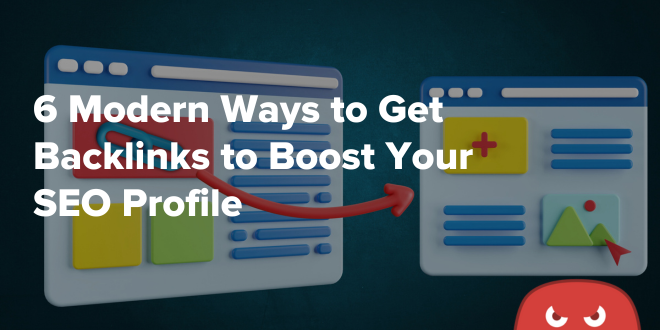





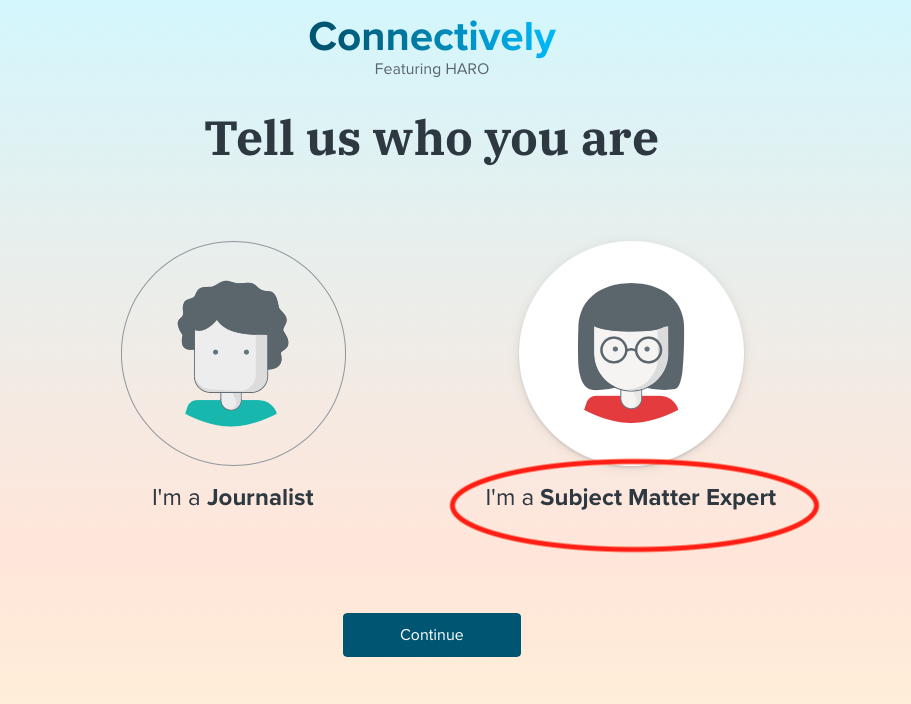
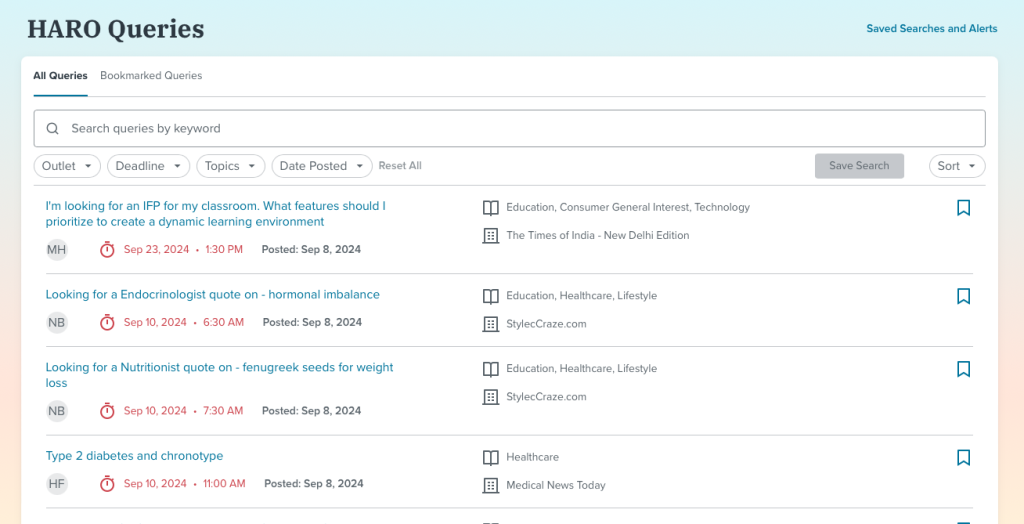




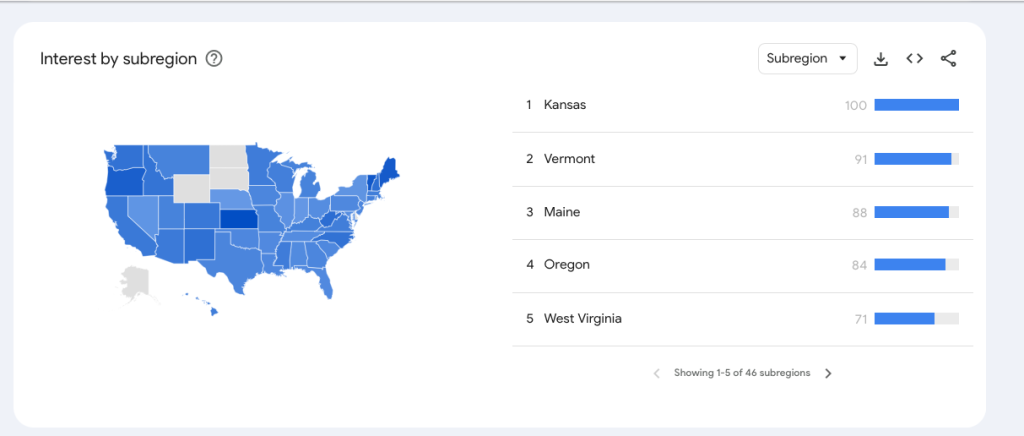
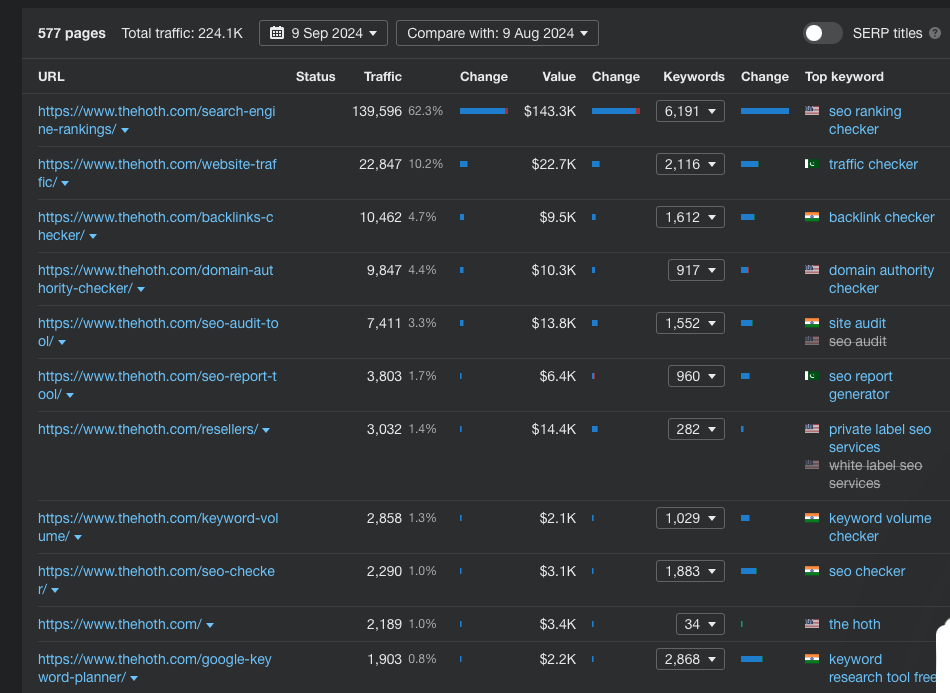


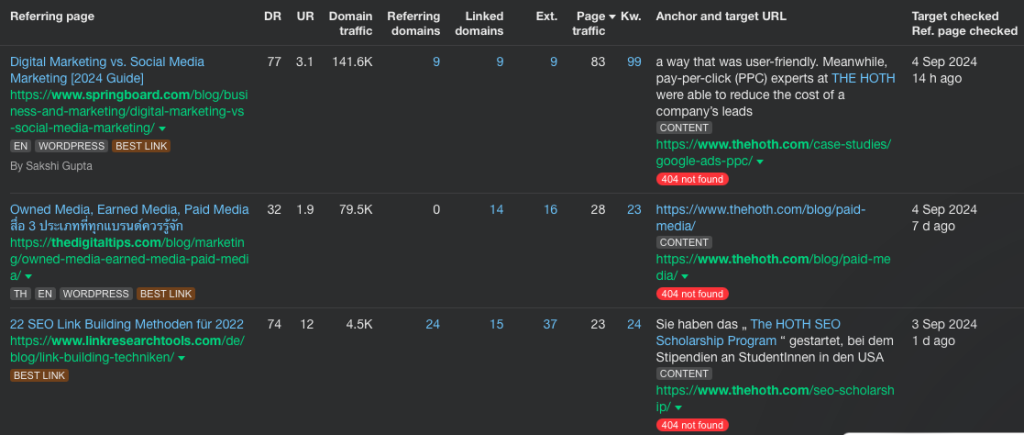


In SEO backlink is more important , before doing backlink Micaela Robinson article is more important for me. Thank you mam , Great work . Thank you HOTH and the entire team.
Great article! Love the modern tips for building backlinks, especially using social media and influencers. Can’t wait to try these out for my SEO! Thanks!
GREAT ARTICAL… IT WILL REALLY HELP ME
This article is a great resource for anyone looking to improve their website’s backlink profile. The strategies provided are practical and effective. Thanks for sharing!